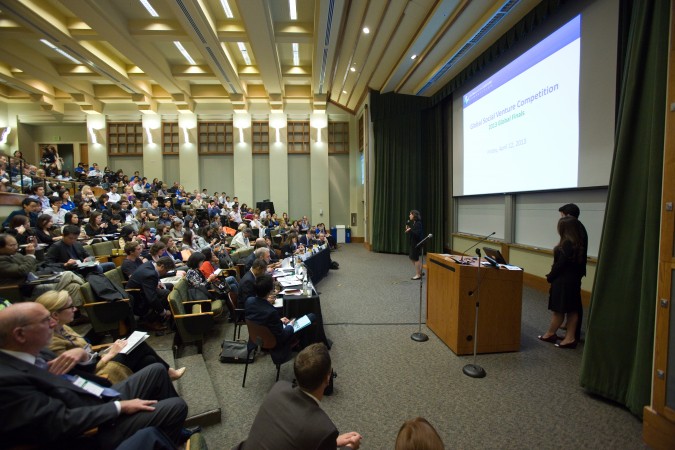
On Friday, April 12, 2013, I attended the 2013 final presentations by teams competing in the Global Social Venture Competition.
I was invited by Jennifer Walske, Faculty Director of the Global Social Venture Competition. Walske moderated the question and answer session between the judges and the competitors. I paid for a ticket to attend the event, but at a reduced rate as a member of the press — USD $49.50 rather than $99.00. Thank you to the organizers for the discount.
This event took place at the Haas School of Business on the campus of the University of California in Berkeley, California USA. Haas Dean Rich Lyons opened the event with some wise remarks.
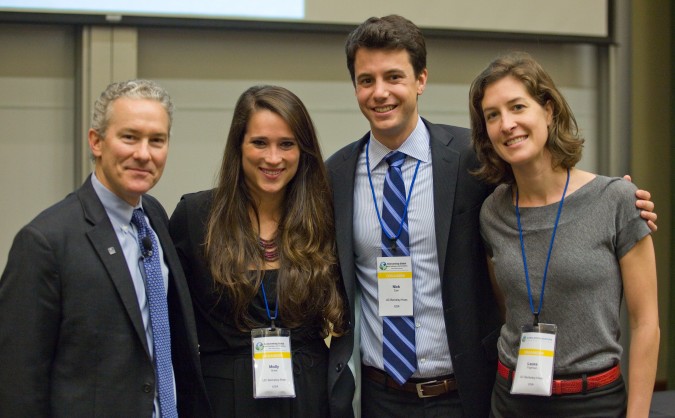
This event was an all day affair, with keynotes, panels and even a debate. I arrived at 8am and left around 8pm.
This competition is the premier social venture competition in the world, and, according to the organizers, close to 650 teams from 37 countries competed. My friend Sara Olsen co-founded the competition while she was getting her MBA at the University of California Berkeley.
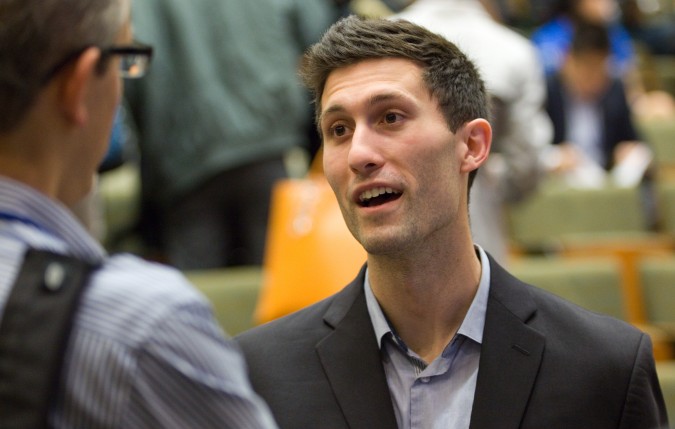
The morning keynote
Josh Nesbit, the CEO of Medic Mobile, gave one of the more uplifting keynotes I have heard in a while. I didn’t take notes so I am not prepared to summarize it, but he tells about a remarkable journey over the last four years or so where this non profit has improved the lives of tens of thousands of people in the developing world. The video of the talk should be posted to the Global Social Venture Competition website, or perhaps YouTube, by Friday, April 19, 2013, I’ve been told, so you’ll be able to watch it there. It’s well worth watching. I photographed Nesbit twice, and there is a more formal portrait of him at the bottom of this post.
The 6 final finalist teams
All 18 teams that traveled to Berkeley are finalists, and they all wore the same type of name badges. The 18 teams presented on Thursday, April 11, 2013, and the best 6 teams became what I will call the final finalists. In this post, I present short executive summaries of each of the 18 teams. This text was written by the teams themselves — I just copied it from the luxurious pamphlet distributed at the event. Normally, I place such text in quotes, but since this text compromises so much of this post, I am telling you here that the summaries are text I did not write.
The teams that advanced to the concluding round of judging are:
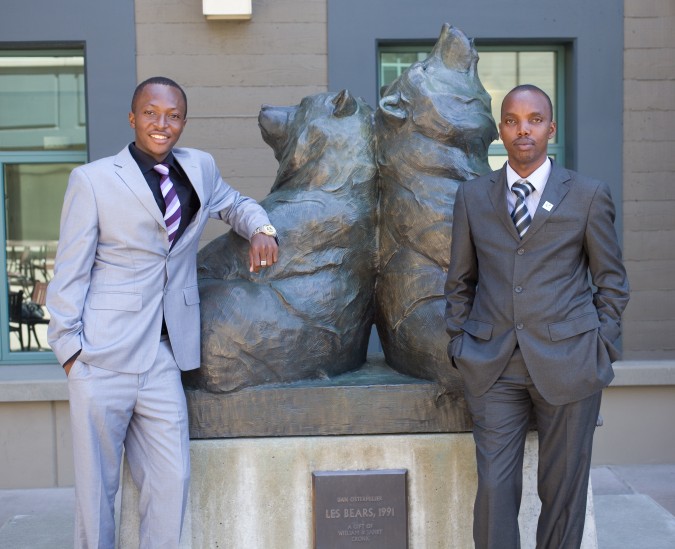
Faso Soap
1st place winner of USD $25,000; Blum Center for Developing Economies Peoples’ Choice Award of $1,500 — from the country Burkina Faso
According to the World Health Organization (WHO), about half of the world population is still at risk of contracting malaria. In 2010, among 219 million people affected, there were 660,000 deaths, of which 91% were in Africa where malaria remains the leading cause of death. Particularly vulnerable individuals are pregnant women, children under 5 and HIV patients. Considering this alarming report, Moctar Dembele and Gérard Niyondiko, two students from 2iE Foundation, have found an innovative solution through the project Faso Soap. The “soap of Faso” offers an innovative solution for the prevention of malaria, which takes into account financial constraints and cultural habits of African families. The company will produce and market both antibacterial and anti-mosquito soaps made with 100% local resources to integrate prevention against malaria in the daily lives of people most affected by this scourge. Faso Soap: “The action of a group, the future of an entire nation.”
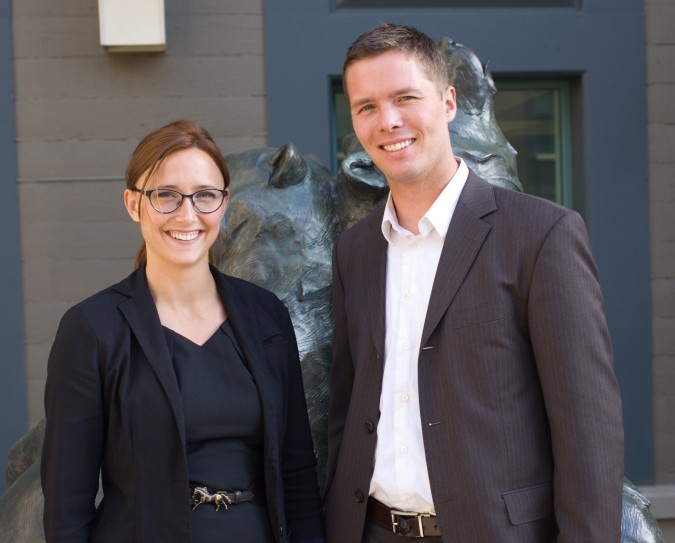
Carbon Roots International
2nd place winner of USD $15,000 — Haiti
Carbon Roots International (CRI) started as an idea to explore the potential of carbon-rich char as a tool for international development. The idea evolved from a chain of emails between three friends, to meetings over lunch, to a trip to rural Haiti in 2010. Upon returning to the United States, CRI’s three co-founders established the organization to enable the adoption of char technologies in Haiti. CRI’s work served as the basis for co-founder Ryan Delaney’s Master’s thesis at Arizona State University’s School of Sustainability, and compelled another co-founder, Hannah Erickson, to pursue a graduate degree at the University of Michigan’s School of Natural Resources and Environment. After several years of refining technology and testing solutions, CRI has produced a feasible, scalable business plan that addresses two overlapping issues—charcoal fuel use and low agricultural productivity—which converge in Haiti, but are endemic throughout the developing world.
I guessed correctly that Carbon Roots would win 2nd place. I really like this company, which makes ‘green’ charcoal briquets out of agricultural waste, like sugar cane waste. The briquets look like small hockey pucks, and apparently burn as well as charcoal made from trees. Deforestation is a large problem, so Carbon Roots has the potential to help the planet on a meaningful scale.
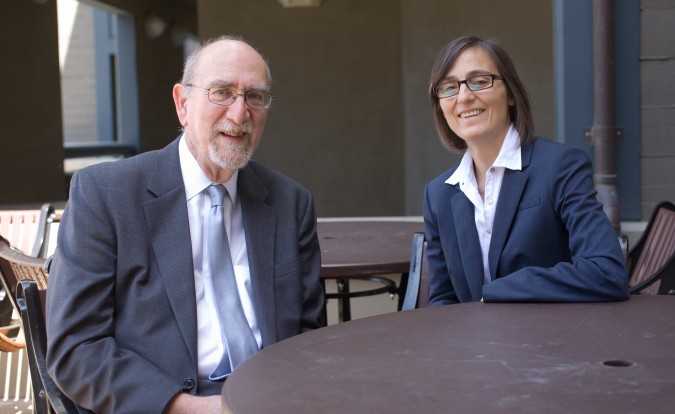
Pulpworks, Inc.
3rd place winner of $7,500 — United States of America
PulpWorks: The planet is choking in garbage – toxic, enduring waste. And the single worst culprit is packaging – thirteen bathtubs full per year for each person on the planet; in the U.S. alone, 31 million tons of plastic waste was generated last year. PVC is the world’s leading toxic packaging material. Consumer packaged goods companies are seeking a cost-effective, sustainable replacement for their current unsustainable PVC packaging. To address this crisis, PulpWorks has created a compostable, all-pulp-and-paper alternative to toxic plastic (PVC) blister packaging. Our patent-pending package is, in essence, the “un-blister”. It showcases products in the same manner as traditional blister packs, but, rather than ending up in a landfill, the entire package can be composted after opening. Increasing consumer and regulatory pressure will eventually remove PVC from the marketplace. As designers and manufacturers of eco-friendly packaging, PulpWorks will reap the rewards of this marketplace shift.
This company has developed a way to turn paper pulp into appealing compostable packaging. The containers they showed me have a texture that is similar to cardboard egg cartons. The three presenters got a laugh out of the crowd when they said between the three of them they have 100 years of experience in business. I like this product, and I hope they succeed. Fortunately, the CEO, Paul Tasner, pictured above and individually below, has decades of experience in the packaging industry, and as a result, he has been able to get meetings with household name companies like Clorox.
The PulpWorks team traveled to the competition finals on Bart, the commuter train system in the San Francisco Bay Area, where the University of California is located.
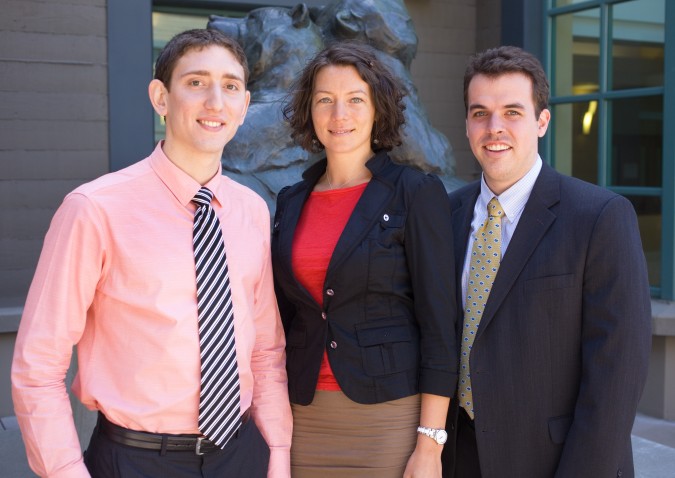
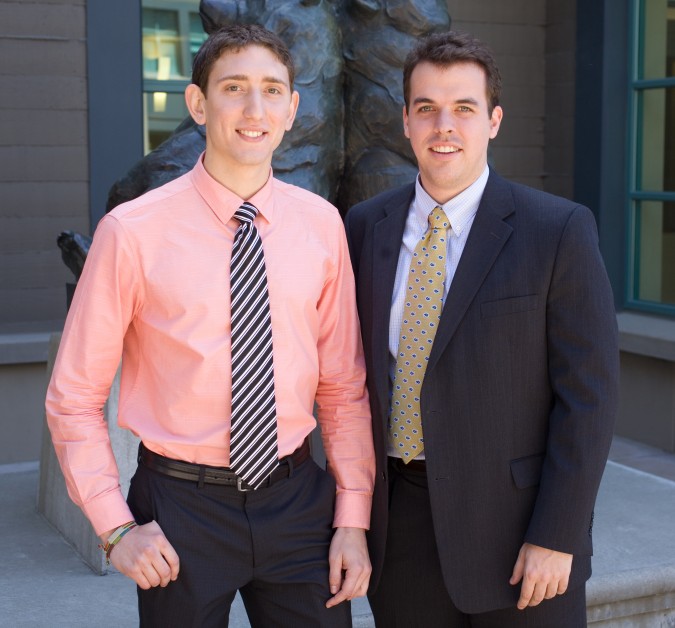
TOHL, Inc.
Chile
TOHL developed a patent-pending technology for installing pipelines cheaply, quickly sustainably, and in any location. This technology utilizes much longer segments of pipeline than what is traditionally used. Single segments of pipeline are manufactured in lengths of 500 meters to several kilometers, and these long segments are loaded directly onto large spools that are deployed via helicopter or truck. The pipelines have fewer connections, which decreases labor hours during installation and allows the pipelines to be in operation faster than is possible if using conventional infrastructure technology. The patent-pending helicopter installations method also allows for TOHL to access remote areas that previously could not be reached, which is significant, because valuable water sources are often inaccessible. Lastly, TOHL’s technology also offers the service of pipeline removal and re-use, when the pipeline is only needed for temporary applications. The tubing is re-spooled and recycled for other projects saving money and resources.
This is the team I thought would win 1st place. Drinking dirty water either kills or makes ill countless numbers of people. This company can install a flexible water hose by flying a helicopter from a source of clean water to where water is needed. Often, their services are needed after a natural disaster like an earthquake. It could take months to repair a permanent underground pipe that serves an area damaged in a quake. TOHL can install a pipe overground in minutes once everything’s set up. The technology is not new, as I learned the oil exploration industry has been using the technique for years to bring water to their drilling rigs that are often out of reach of conventional plumbing. What’s new with TOHL is their specialization on emergency installations. They have developed expertise working with local governments to get the necessary permits and easements, a process I suspect is so difficult that it will discourage cheap copycats from competing with their company. The company’s first efforts have been in Chile, most likely because they received startup financing and support as part of the well known Startup Chile program.
The TOHL team is operating with real paying customers. The team showed an impressive video where their rented helicopter drops down tubing from a giant spool that hangs below the aircraft like a water container on a fire fighting helicopter. The TOHL helicopter showed tubing can be set down even on the tops of trees — flat or smooth ground is not required.
If the tubing is made unnecessary after some months, perhaps by the broken underground pipes being restored, the tubing can be reeled back onto the spool for reuse elsewhere.
Amazingly, the tubing can handle being outside for 25 years.
Founders Benjamin Cohen and Travis Horsley were impressive, and I spent perhaps half an hour hearing about their exciting venture. I wish them well.
The TOHL team studied at the Georgia Institute of Technology (Georgia Tech), one of the 9 partner schools that together stage the Global Social Venture Competition. Each school sends a representative that works for the institution to the global finals. Georgia Tech sent Dori Pap, the Assistant Director of the Institute for Leadership and Entrepreneurship, pictured above with the TOHL team.
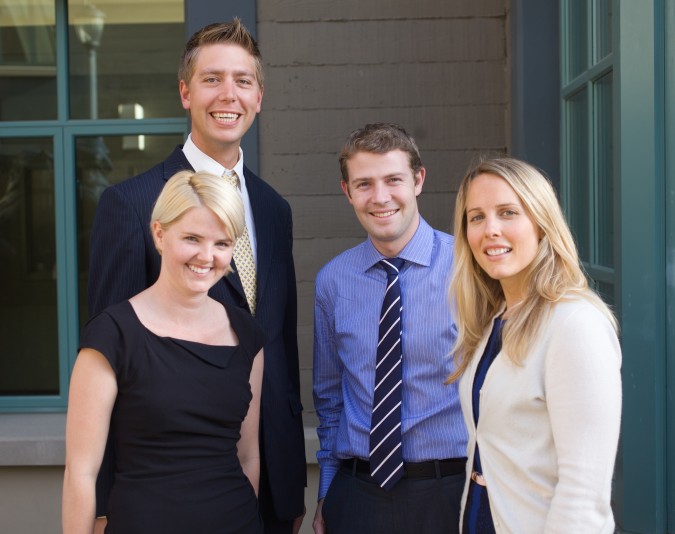
Reel Gardening
Reel Gardening is a manufacturing company that aims to make gardening simple. Its main product is a biodegradable strip that encases organic fertilizer and open pollinated seed at the correct depth in the soil, and the correct distance apart. Reel Gardening indicates where each plant will sprout allowing for watering to be localized, enabling a saving of 80% water in the germination phase. The strip also helps restore soil fertility as the paper breaks down and the vegetable based inks and organic fertilizer seep into the soil. The Reel Gardening team is made up of Claire Reid (Inventor and Founder), Sean Blanckenberg (Director at Reel Gardening), Emily Jones (Project Manager at Reel Gardening), Greg Macfarlane (Financial Advisor) and Dianna Moore (Business Advisor).
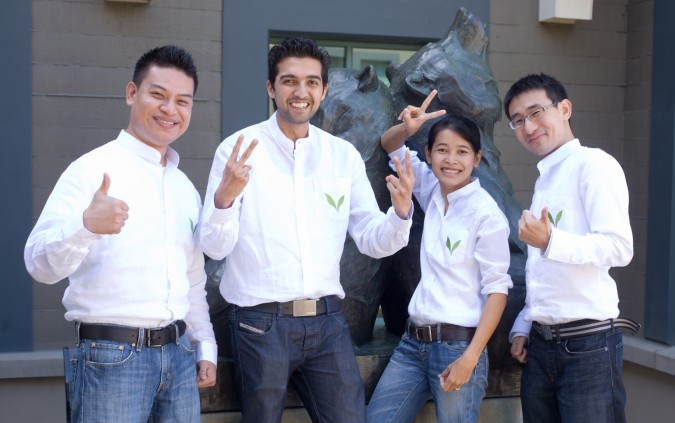
CSA Munching Box
CSA Munching Box is a community-supported agriculture (CSA) program providing weekly subscription-based delivery of seasonal, organic fresh fruit and vegetables direct from the farms to customers’ doorsteps and bringing the customers closer to our farmer networks in rural areas. We also serve as a distribution platform linking artisanal food producers to the urban market. Additionally, CSA Munching Box brings positive social impacts to its partners. We also use packaging made from recycled materials as well as deliver our products via bicycle couriers to reduce carbon footprint. The primary target customer group is the health-conscious and discerning consumers in major cities across Thailand. This group tends to have more knowledge about CSA, appreciates the concept, and possesses higher purchasing power.
The 12 finalist teams
Eighteen teams traveled to Berkeley for the final two rounds of the competition. On Thursday, April 11, 2013, six teams advanced to the concluding round of judging. The twelve teams that did not advance each got to deliver their pitch to all the attendees. The 12 finalists are:
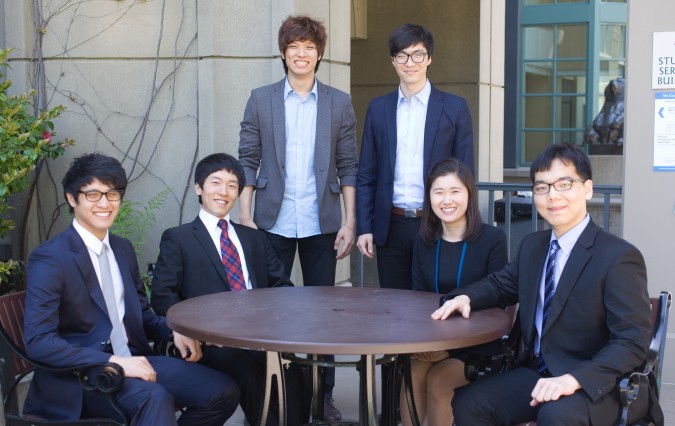
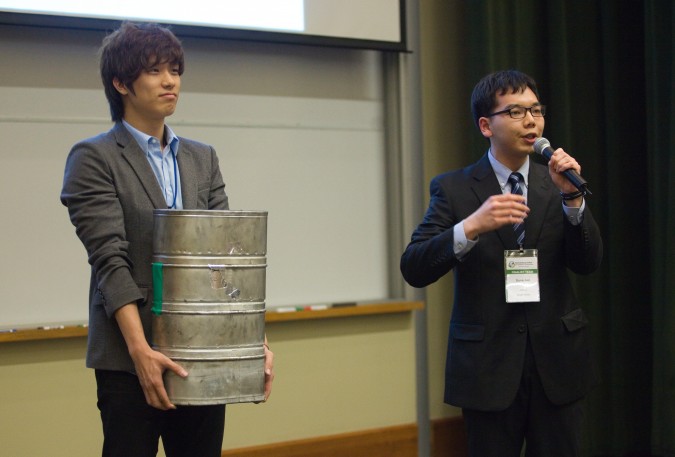
AtRium
South Korea
The low income families in the world’s cold regions suffer not only from cold weather but also from problems such as fuel costs, illness, and pollution due to their outdated, inefficient stove heating system. AtRium addresses these socio-economic and environmental issues through an affordable heat absorber, G-saver, which is developed based on appropriate technology. Our primary target is Mongolian households living in a “Ger.” Later we will expand to other cold regions such as Inner Mongolia and Kazakhstan, and also to developed countries with our technology. Built on a consortium among Good Neighbors (NGO), Good Sharing (Social Venture), and Korea Advanced Institute of Science and Technology (Academia), we aim to contribute to building a sustainable ecosystem that balances economic and social values by pursuing sustainable profit generation, improving the quality of life of low income families, protecting the environment, and developing local economy in cold regions.
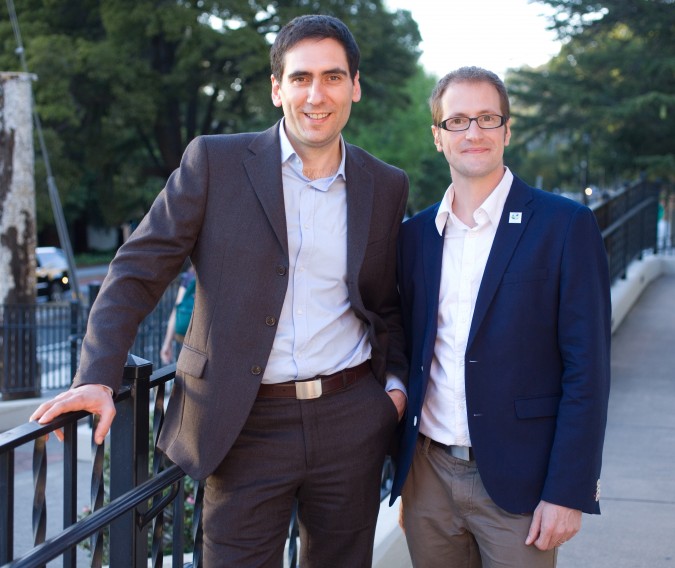
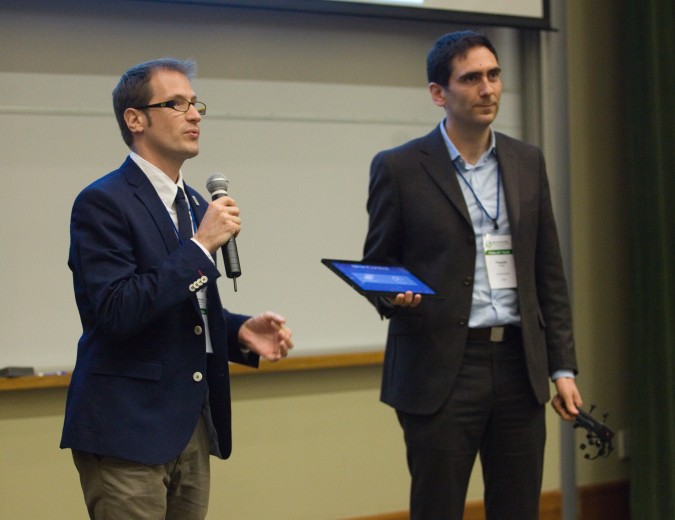
BrainControl
Italy
BrainControl is a breakthrough technology that gives disabled people the power to control objects with their minds, allowing them to control a communicator, domotic devices (lights, doors, windows, alarms, temperature, bed position, etc.), wheelchairs, and other assistive technologies. Based on a proprietary Brain-Computer Interfaces technology (BCI), BrainControl interprets the electric map that correspond to certain brain activity and allows patients to control a tablet PC through specific thoughts, overcoming physical disability, and improving communication and environmental control. The focus is on assistive applications for people affected by degenerative neuromuscular disease (multiple sclerosis, amyotrophic lateral sclerosis – ALS) and ischemic or traumatic injury, which each year affects more than 3 million patients. BrainControl is the world’s first assistive technology that is usable by people who cannot move any muscles or communicate, but who are consciously aware, a state called “locked-in” or “apparent coma”.
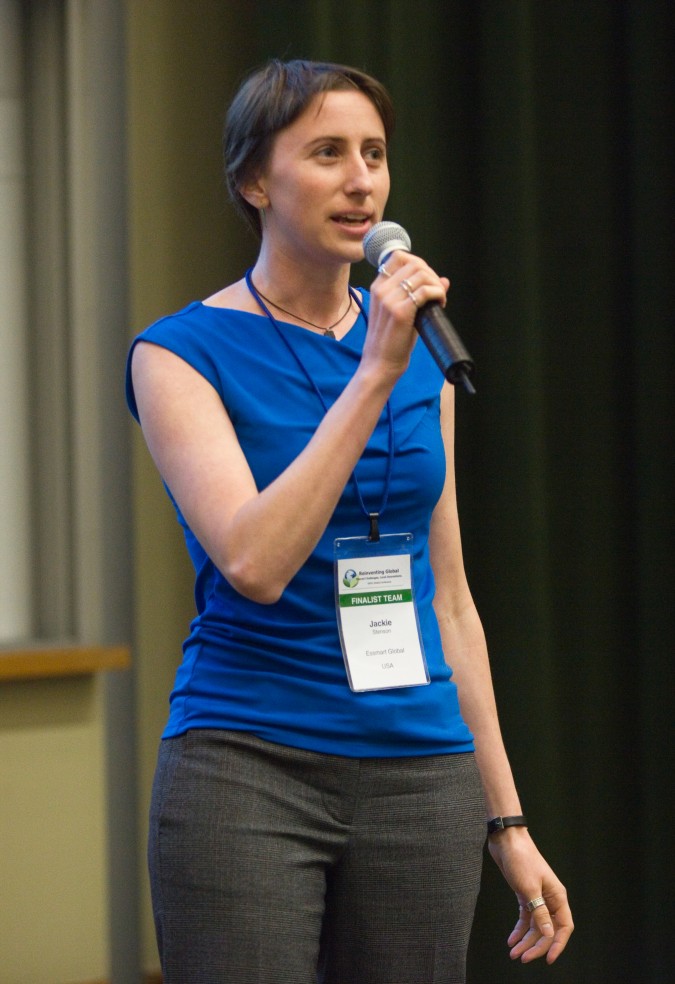
Essmart Global
United States of America / India
Essmart: Millions of people have unmet essential needs, such as clean water and safe, reliable lighting. Hundreds of essential technologies that meet these needs already exist, such as non-electric water filters and affordable off-grid solar lanterns. However, these technologies are not reaching the people they were designed to benefit. Essmart builds an essential marketplace for these products in places where people already shop – their local retail shops – so that everyone can access them.
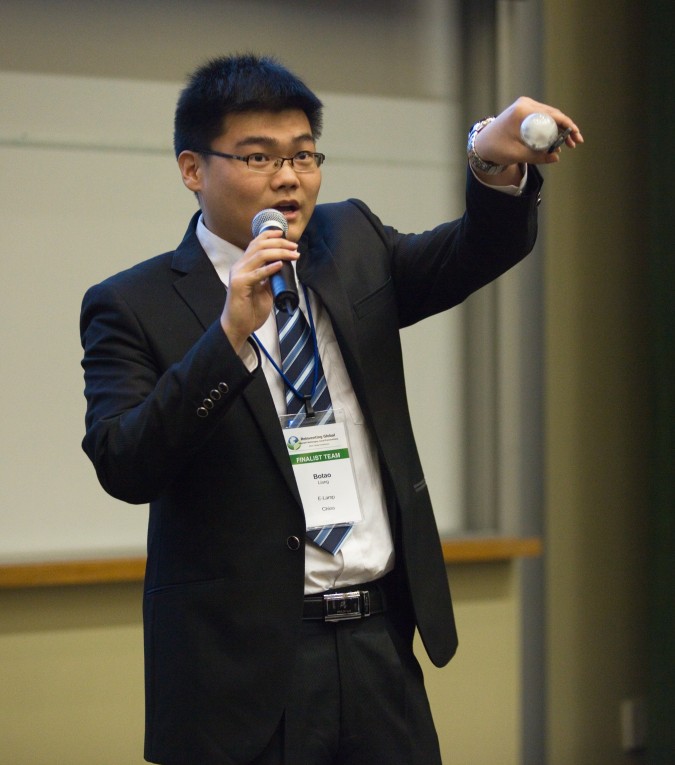
E-Lamp
China
E-Lamp is an intelligent lighting control system. It can adjust the color and brightness level of the LED light source by remote control using a mobile device. It can be used in agriculture: as the population of the world continues to grow, more food and crops are needed. As plants at different growth stages require specific spectral and wavelength, production could be sped up using E-Lamp’s adjustment of light intensity and spectral wavelength. The mobile device remote control can be used in agricultural greenhouses to centralize control of E-Lamp equipment in a single region or multiple regions to make the management more convenient. E-Lamp also can be used to improve disabled people’s daily life, allowing them to easily control the light and adjust the color to match their mood, even for psychological treatment.
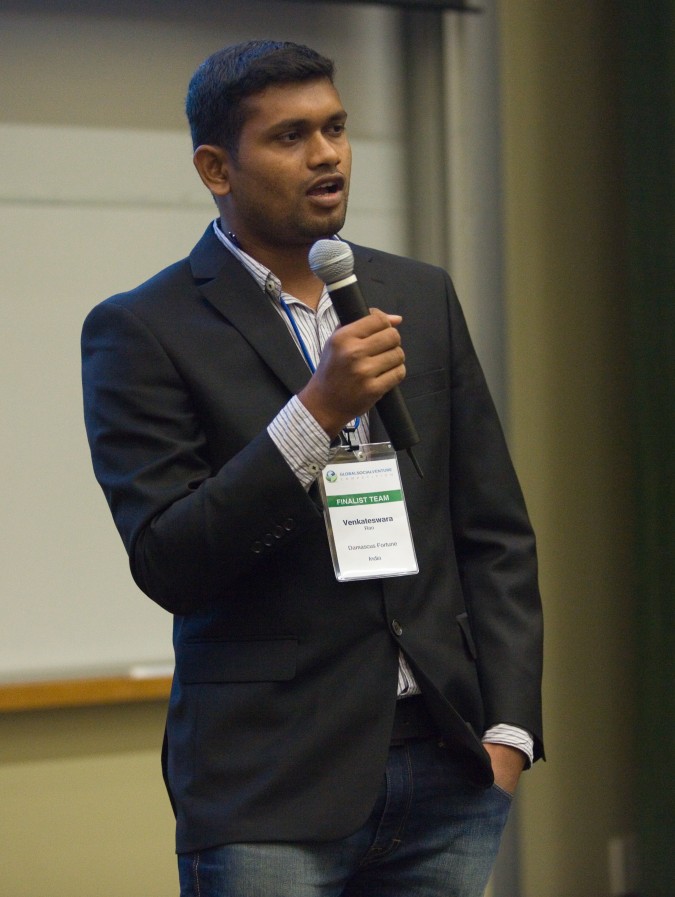
Damascus Fortune
India
We at Damascus Fortune not only clean the planet, but have made the whole carbon conversion process profitable. We sequester carbon from carbon emitting industries and convert it into one of the strongest materials known to man – carbon nanotubes, carbon fibers and carbon nanorods. Our products are ultra-low cost as we use the waste emission and heat from the industry itself. We wish to start a composite manufacturing plant from in-house manufactured carbon structures to cater to automobile, aircraft, construction and other industries. We are seeking support to scale into new markets globally.
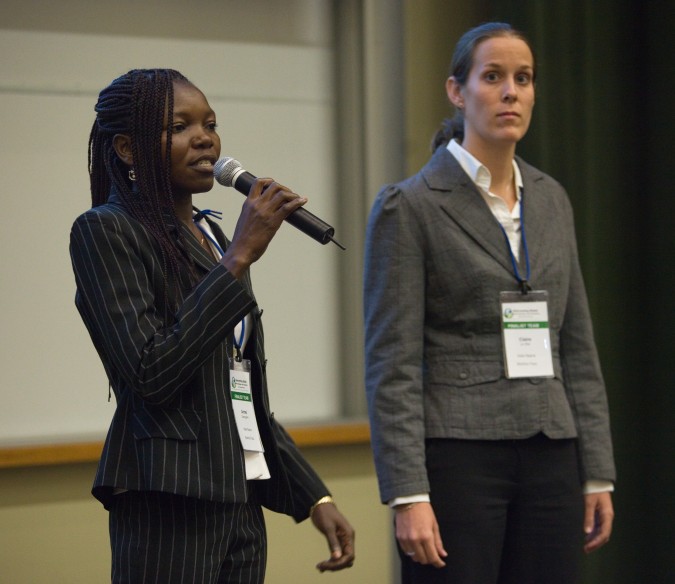
Nafa Naana
Burkina Faso
In Burkina Faso, households still rely on firewood for 90% of their energy consumption, thus contributing to irreversibly damaging their forest ecosystems. Toxic fumes from burning wood are harmful for people and issues faced in supplying fuel (for cooking and lighting) are a precariousness factor, particularly for women. Solutions do exist but remain out of reach for the most vulnerable populations. Nafa Naana – which means “gains made easy” in local language – mission is to make clean and affordable energy products (energy-efficient stove, gas stove, solar lamps…) available to even the poorest households. The distribution channels are based on retailers operating as social microfranchisees and on direct sales to women’s groups. Financial barriers – for end-users, retailers and producers – are removed through the use of microcredit and savings mechanisms.
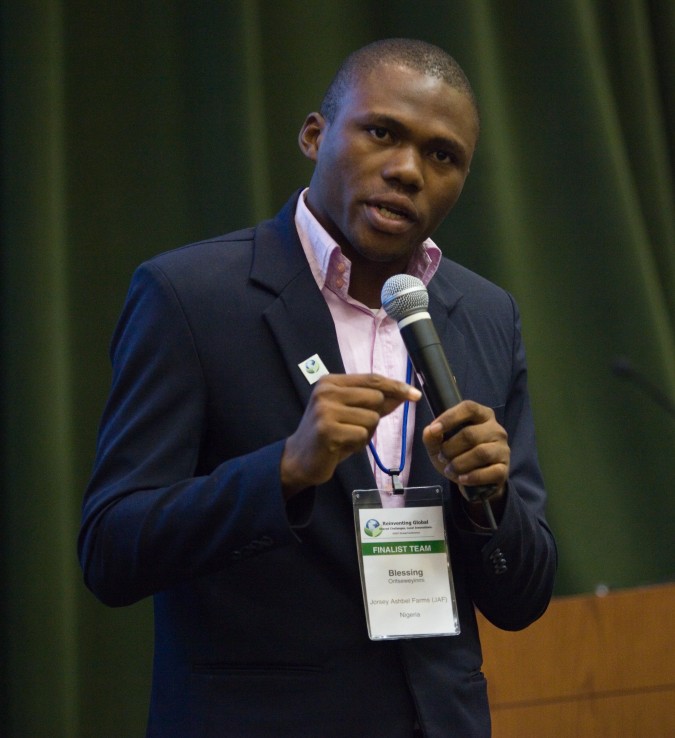
Jorsey Ashbel Farms
Center for Responsible Business Quick Pitch Award of USD $1,000 — Nigeria
Jorsey Ashbel Farms (JAF) is an unconventional livestock farm pioneering a groundbreaking approach to tackling the poverty problem of Protein-Energy Malnutrition, which affects millions of disadvantaged children and women. JAF produces Nigeria’s cheapest livestock products using an innovative, scientifically proven, low-cost livestock feed production technique combined with an innovative deployment strategy.
Meme B. Ortis in my mind really deserved this award. He was the most intense and passionate of all the 18 speakers. You can see his energy in the picture of him just above. He was constantly using his hands to make his point, and his voice was powerful and resonant. I was so happy I got to meet Ortis to photograph him.
We had a great conversation about those pesky emails everyone receives asking for help moving millions of dollars for a percentage. He said he has several of them in his email box right now. I shared with him the story of a guy that turned the tables on the spammers by getting them to write out in longhand one of the Harry Potter books. He had not heard about that reverse scam. If you haven’t heard about it either, I promise you’ll enjoy the story.
Here’s the summary: a guy gets a scam email and replies he’s too busy to help because he’s busy providing handwriting samples at $100 a page to improve a company’s handwriting recognition software. Soon, the scammer is asking to join in providing samples, and he ends up writing out with a pen the text of a 293 page novel, hoping to collect tens of thousands of dollars. Of course, he never is paid for his work, which is retribution for him scamming others out of their money via his emails.
From the summary written by the team, you wouldn’t guess what they really do, which is fascinating.
There is protein rich food inside a mango seed. The company opens the seeds, which apparently are not costly and are plentiful, and extracts the presumably mushy contents. That contents are so acidic it will kill chickens that eat it directly, but Jorsey Ashbel Farms has developed a method to process the extract so that chickens can safely and productively eat it. Even though this sounds like a lot of trouble, I learned there is a big cost savings versus feeding chickens corn. JAF runs a farm where they grow mangos and raise 10,000 chickens, in harmony. I would love to visit their operation to see this wonderful sounding operation first hand.
I forgot to tell the founders that I raise four chickens for eggs in my backyard in San Francisco. My chickens eat chicken feed from a bag, not mangos, however.
Ortis’ co-founder Ashbel Ayuba, pictured in the portrait section below, was the most stylishly dressed of the competitors, and had on a pair of highly polished green leather shoes made from the hide of an animal I could not identify. They looked like something rock star Prince would wear. In the early 1990s I saw Prince hanging out as a regular customer in the trendy nightclub Les Bains in Paris, France, and he had on some similarly wild boots, which matched his pants, which matched his coat with tails. He carried a golden walking stick, and had beefy bodyguards on either side, but nobody paid him any attention, as I don’t think he was famous yet in Paris. I told my French friends the next morning that I had seen Prince, and not one of them knew of him. I was ten feet from Prince dancing for an hour, so I am 100% certain it was Prince.
I stopped Ayuba on the stairs and asked to photograph him before I even knew what company he was part of — I just love his look and attitude. I told him he looked like what I would imagine an African James Bond would look like. He enthusiastically pumped his fist in the air and said ‘YEAH!!!’
I love being a photographer.
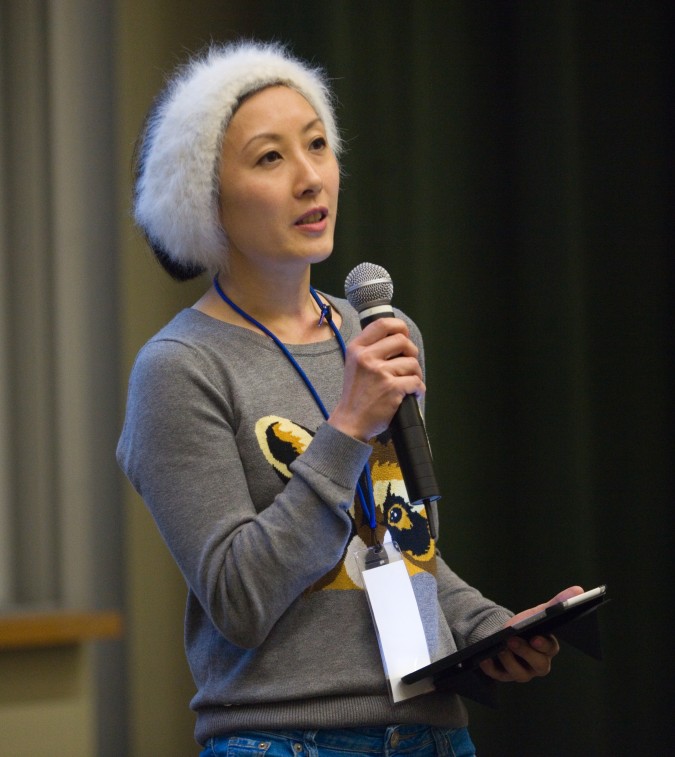
WOOF
Hong Kong
WOOF is a premium fashion brand producing elegant, yet quirky and fun fashion accessories. What makes us different is that our line of goods is produced by Chiengora (dog hair). WOOF’s raw material is collected from various grooming stores and animal welfare organizations. The grooming division of our current NGO partner, the Society for the Prevention of Cruelty to Animals (SPCA), provides over 60% of the dog hair raw material for WOOF production. WOOF ensures that all our sources of material are 100% animal-friendly. WOOF production is a technology innovation. We are currently co-developing the machine spinning technology with our academic partner, the Institute of Textile and Clothing (ITC) from the Poly University of Hong Kong. Through fashion, WOOF aims to change attitudes towards animals. We aim to do this through two means: 1) reducing animal surrenders and increasing animal adoptions, and 2) improving the living conditions of animals.
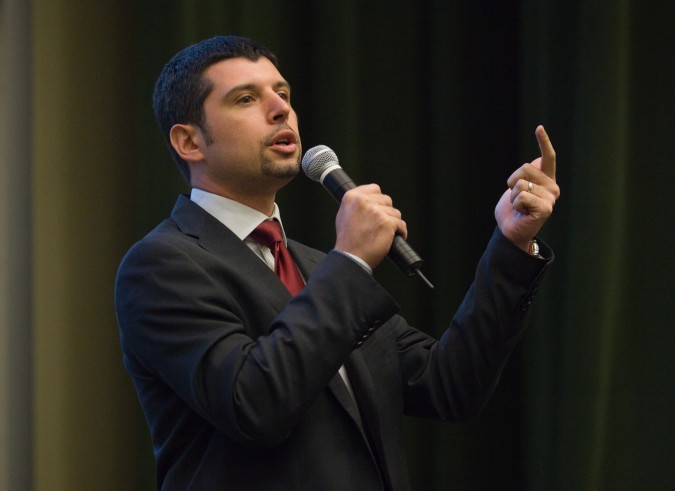
Wedu
Thailand
Wedu catalyzes the next generation of local female leaders by providing innovative financing options for university and the lifelong support of mentors. We create a sustainable and positive cycle of development by identifying girls committed to local issues; investing in their education; mentoring them to lead and creating incentives for them to repay the funds to serve more girls. We envision a world where people from the most underprivileged backgrounds have the tools to change their lives and their home country by being masters of their own development. We started operations in Cambodia and Myanmar, built partnerships from the U.S. to Japan, united a league of extraordinary advisers and mentors from the Acumen Fund, Husk Power Systems, Unreasonable Institute and beyond. Wedu is Social Enterprise Startup of 2012 at Cambridge University, GSVC-SEA Winner, Semi-Finalist for the Echoing Green Fellowship and in the Top 10 Global Solution Award at Women Deliver 2013.
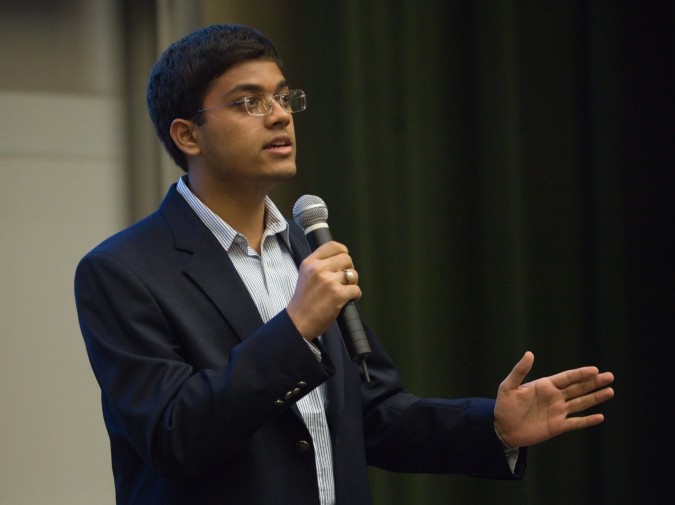
Vi-Care
India
Vi-Care is a one-of-a-kind company in India, and is on its way to formation to provide a low cost solution to address the problem of high infant mortality due to pneumonia in rural India. Vi-Care focuses on implementing a cost effective solution for the timely detection of pneumonia in infants, keeping in mind the lack of healthcare infrastructure in rural areas. Vi-Care’s solution involves the use of ubiquitous mobile phones to detect pneumonia in infants. Vi-Care provides a unique diagnostic application (i-Treat) capable of performing preliminary but informative diagnosis of pneumonia without requiring any external infrastructure or expert intervention, thereby greatly improving the chances of survival of infants in rural areas. The value proposition of Vi-Care rests upon providing an unrivaled, cost-effective approach to timely detect pneumonia in low-income, rural areas, keeping in mind the financial constraints of the people.
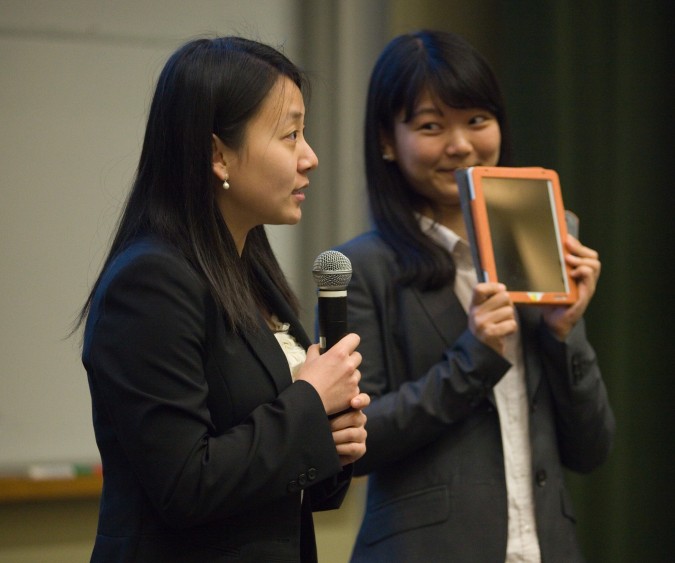
Sunshine Library
China
Sunshine Library Rural Digital Education Initiative (Sunshine Library) is a social venture seeking to improve rural education in China via modern technology. We aim to provide a comprehensive education solution to under-resourced, rural schools using specially designed tablet PCs. Sunshine Library does not only provide tablet PCs for under-resourced schools, nor do we place our volunteer teachers in rural schools. Leveraging information technology, we provide an integrated solution with a sustainable model of operation. We designed a tablet PC, the Sunbook, and educational apps customized to the needs of students, teachers, and schools in rural setting. Then, we deliver the tablets with Internet access to rural students, new teaching methods to teachers, and extensive educational resources to schools, hoping to eliminate education inequity. Now, we have provided 2,000 tablets for students and teachers in 4 rural schools in western China.
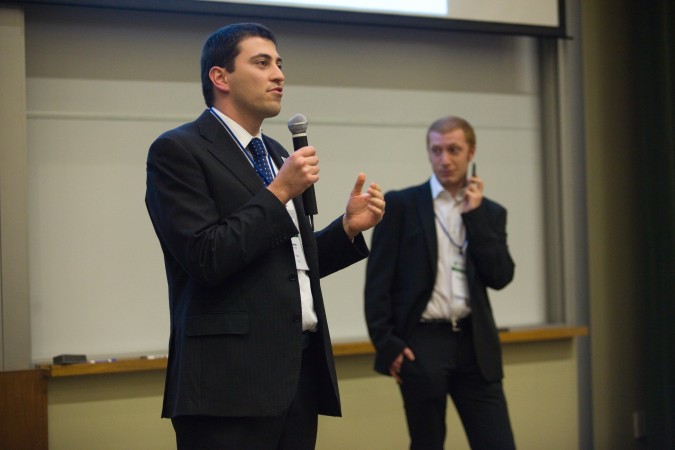
Pedius
Italy
Pedius is a communication system helping deaf people to make normal phone calls, using voice recognition technologies and speech synthesis. Pedius’ users can call all emergency numbers for free, as well as all partner companies supporting our accessibility program who agree to pay a fee and provide users a toll free access number. Users can also call private numbers, paying an affordable fee comparable to what is offered by VoIP communication providers. The goal of Pedius is the reduction of communication barriers for deaf people, enabling phone services for all and at the same time increasing the visibility of our accessibility partner companies.
I like this company. It turns out the founders know my friend Dan Luis, who used to be CEO for years at Purple, the company that bought my first Internet startup Hotpaper.com, Inc. Purple is in roughly the same business as Pedius, but Purple uses people to bridge connections between parties, while Pedius uses software.
The panels and debates
As I mentioned above, this event filled a day. There were panels and debates on social entrepreneurship. I stepped in briefly to take some pictures, but sadly, I did not have time to watch the events, with the exception of the morning keynote. I was busy either photographing or rounding up the subjects nearly all day.
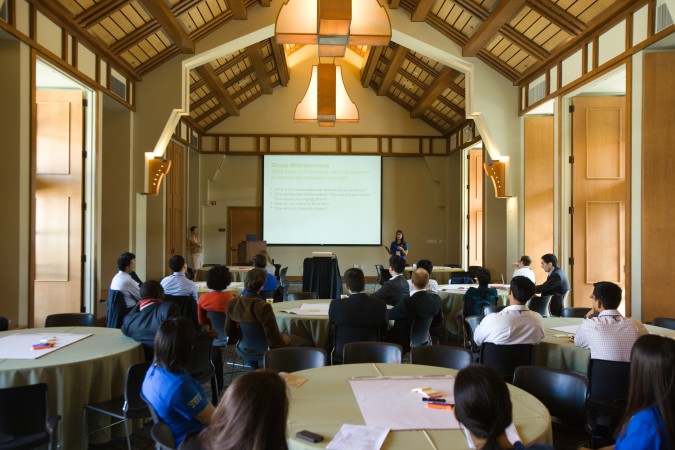
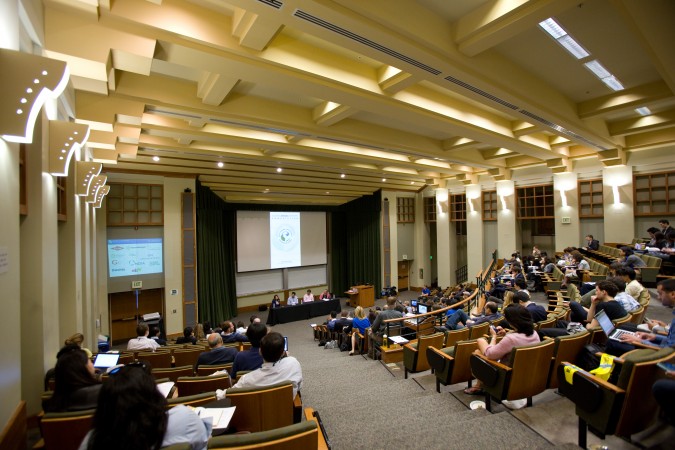
Individual portraits
I took all the pictures that illustrate this blog post. I like very much to photograph people, and entrepreneurs are among my favorite subjects. I asked all of the subjects you see here for permission to photograph them, with the exception of the shot with Dean Rich Lyons, which I captured by standing alongside the official paid photographer, my longtime friend Bruce Cook. He set that shot up, and I simply asked the subjects to look at my camera after Cook was done getting his shots.
I took individual photographs of some of the founders, and I present those images to conclude this post. I gave permission to the subjects for them to use the pictures, so I hope to see these images on their websites and elsewhere around the web. Thank you to all the subjects for being so patient with me to get these results.
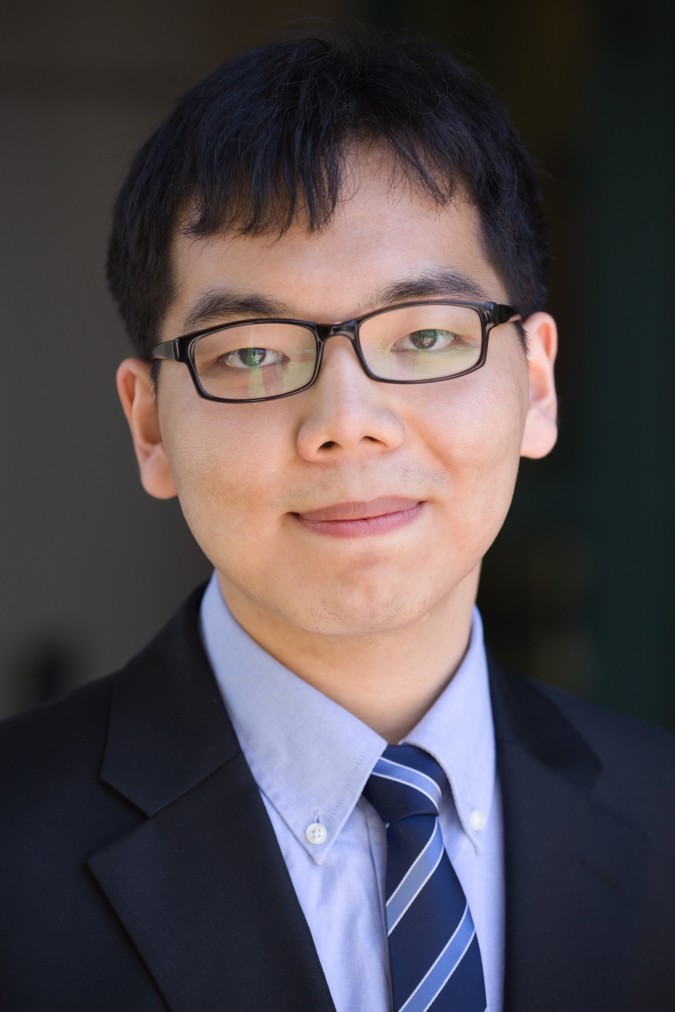
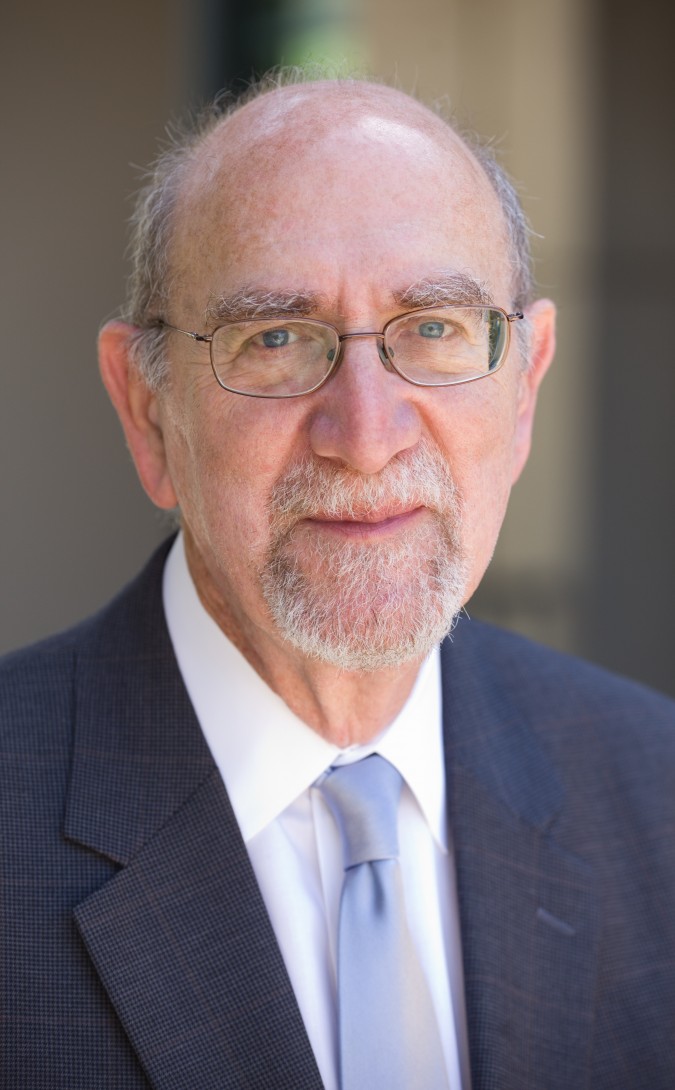
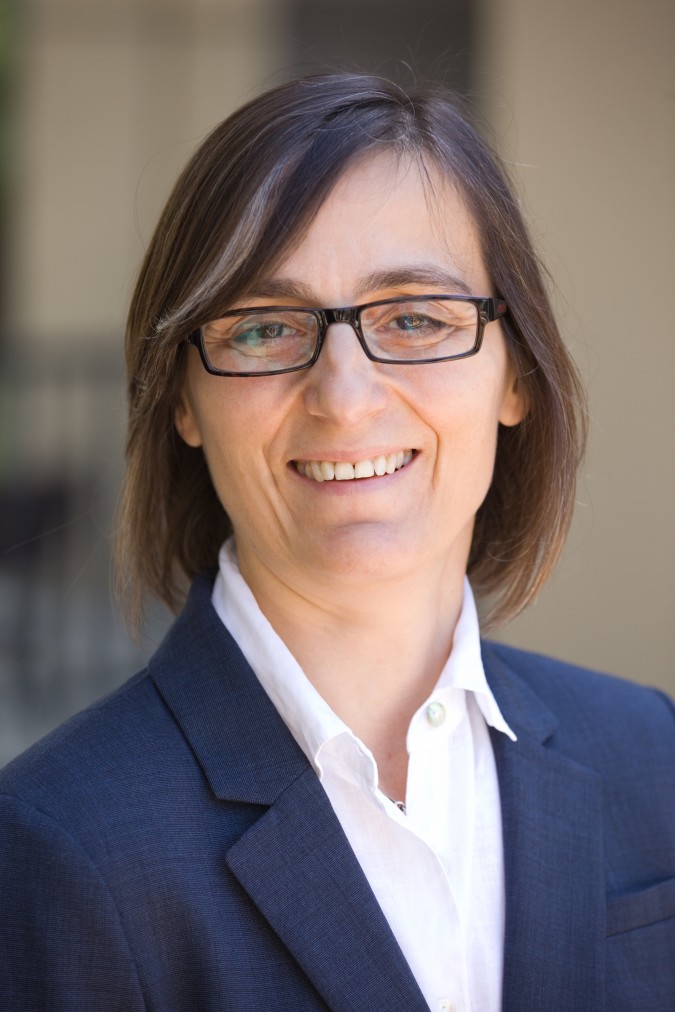
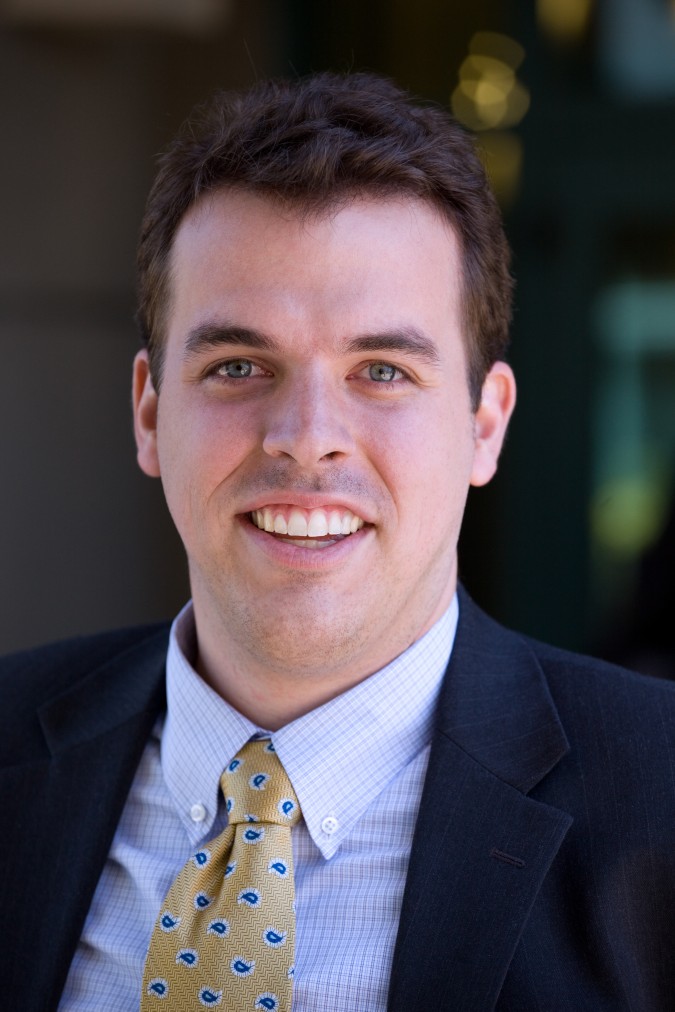
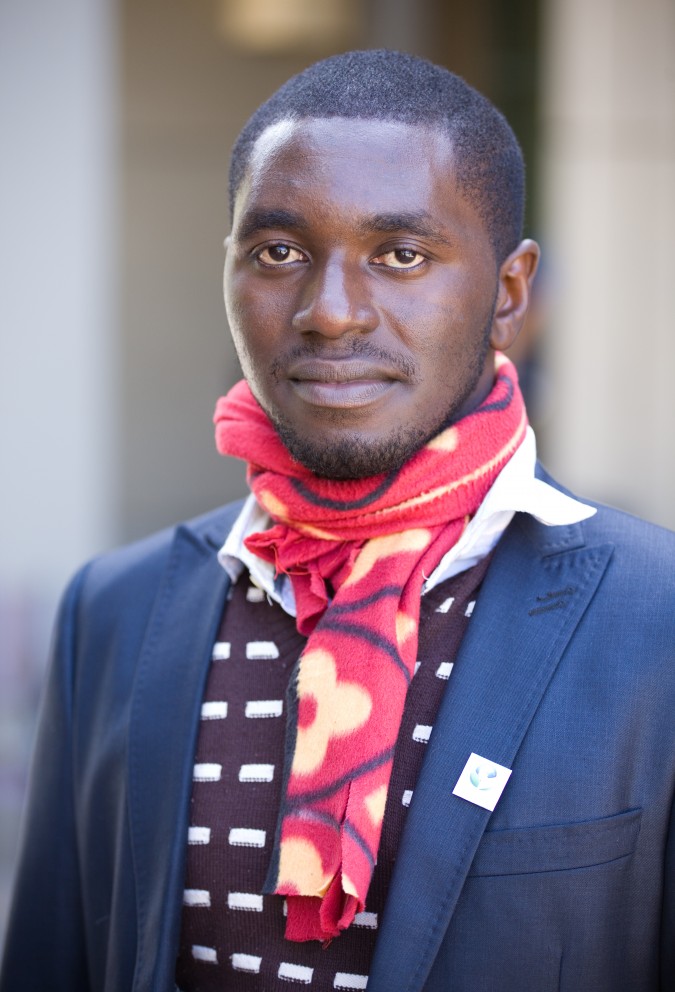
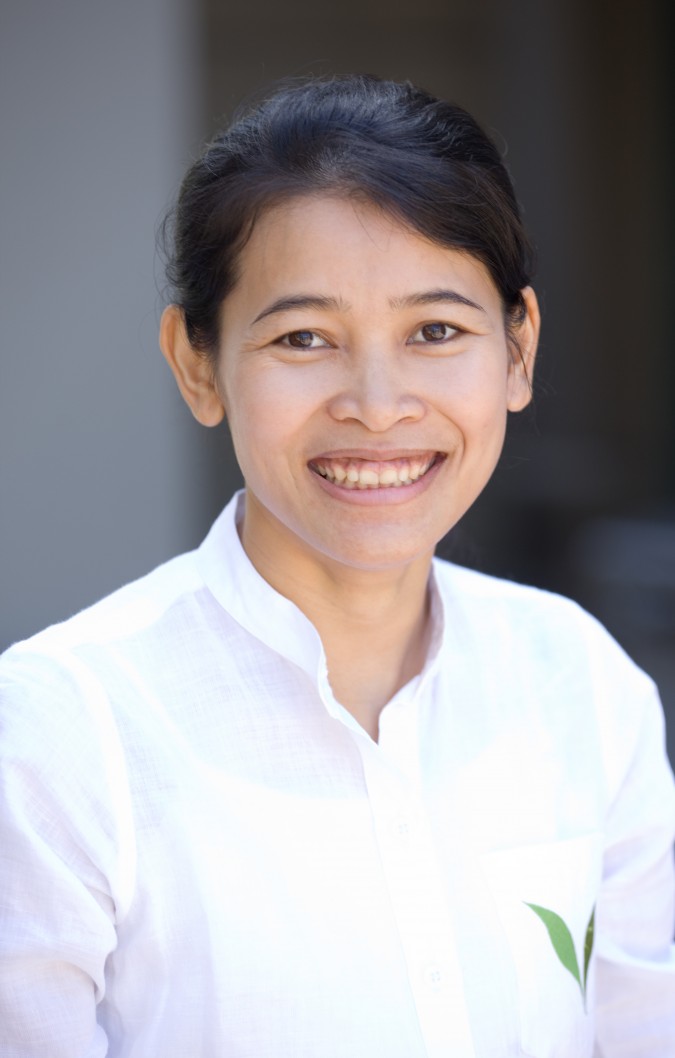
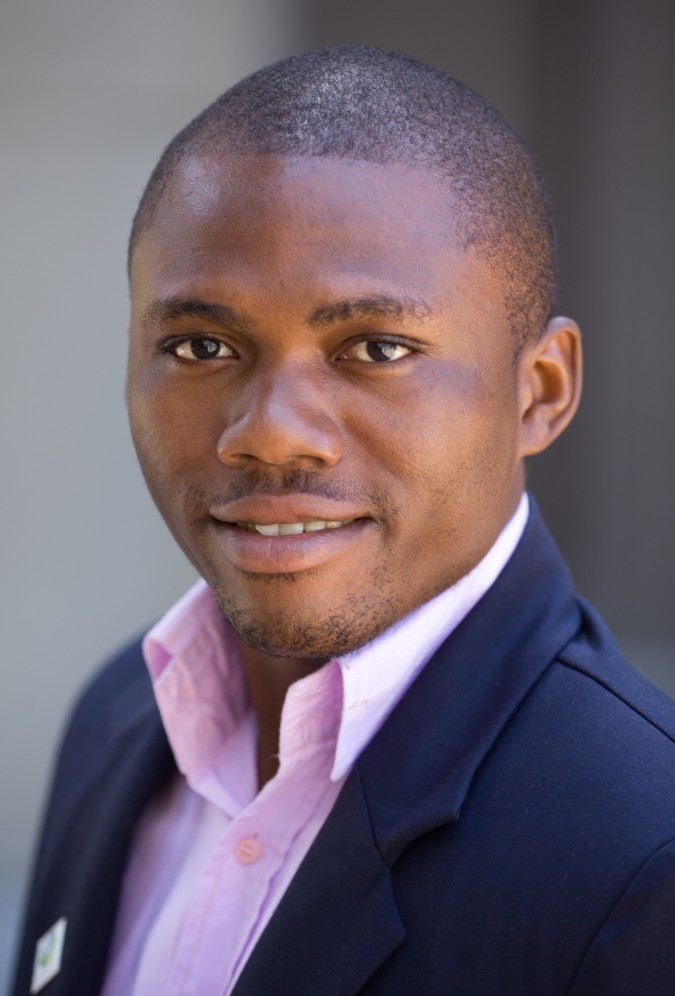
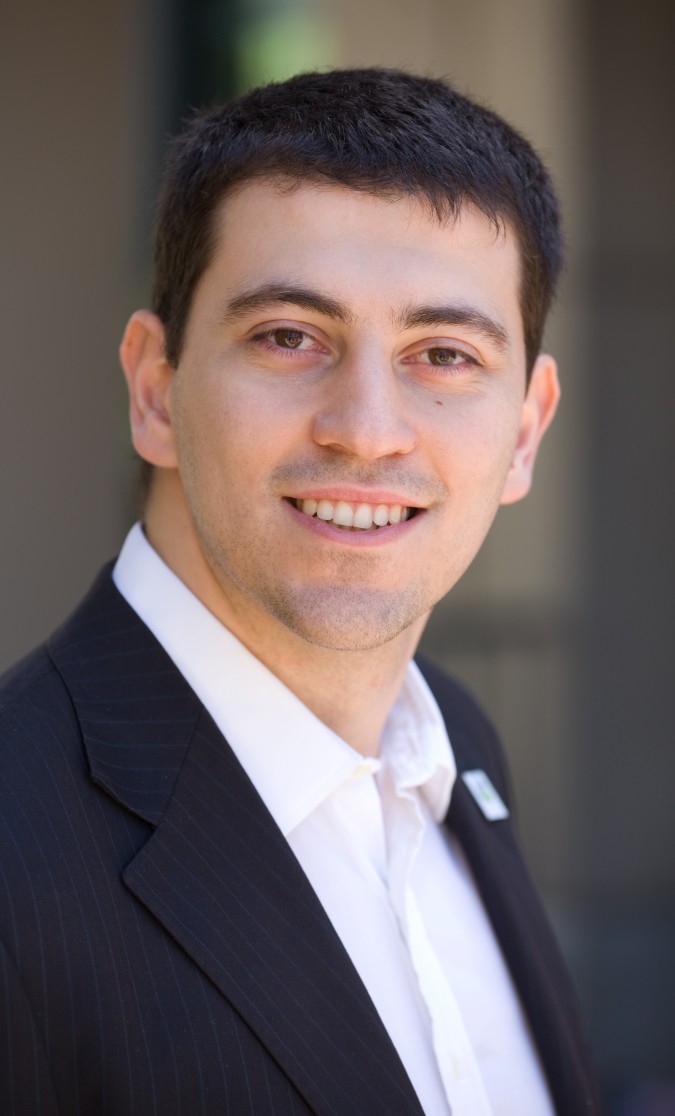
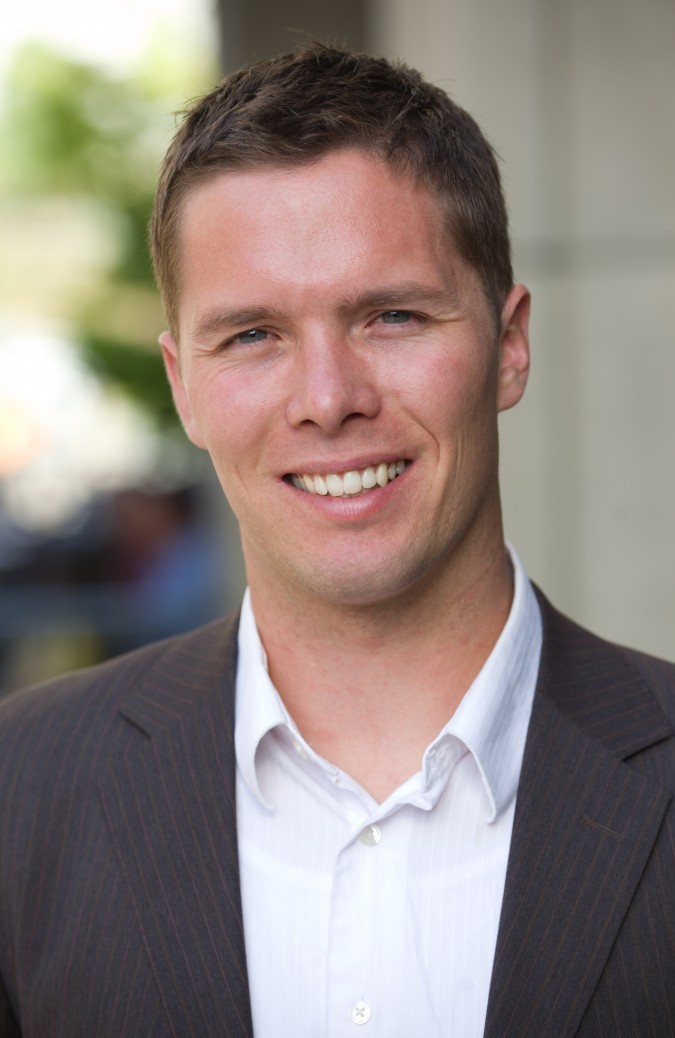
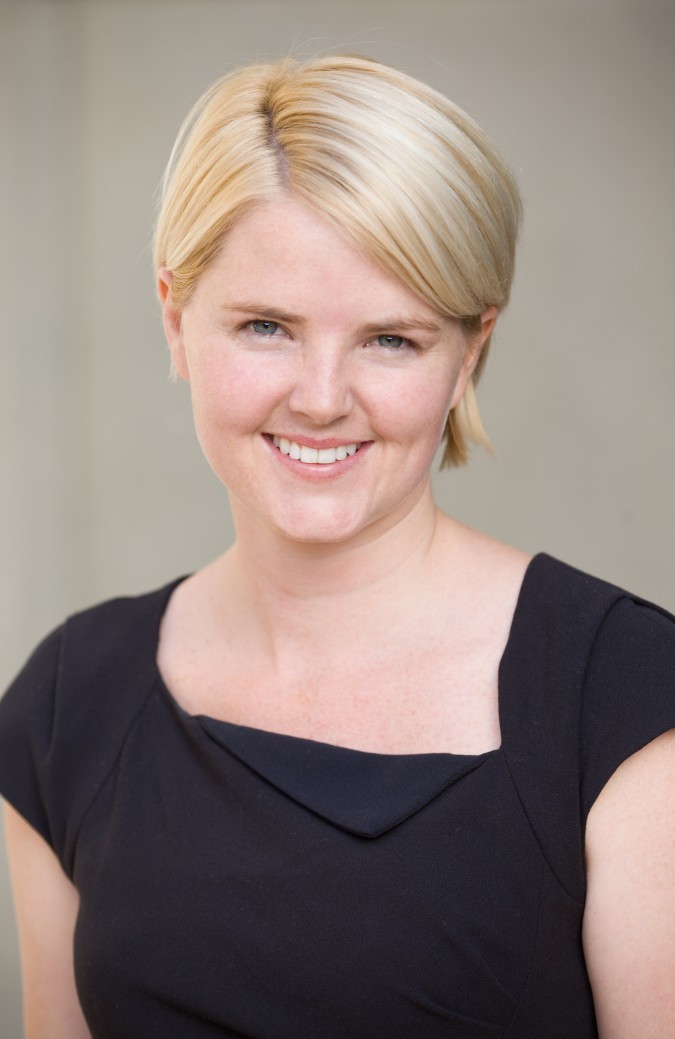
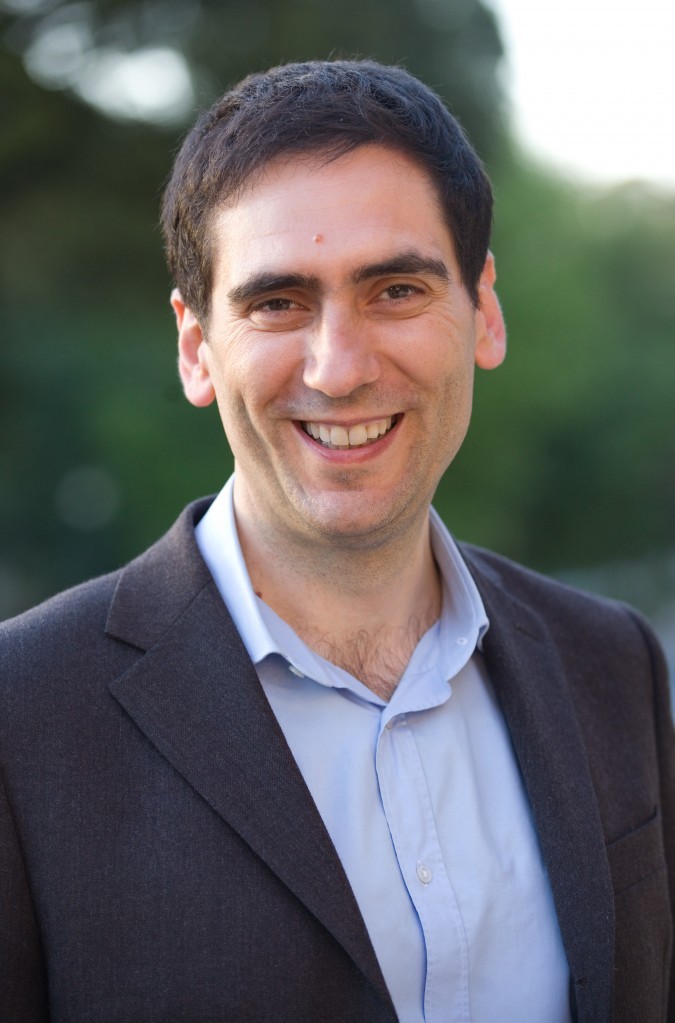
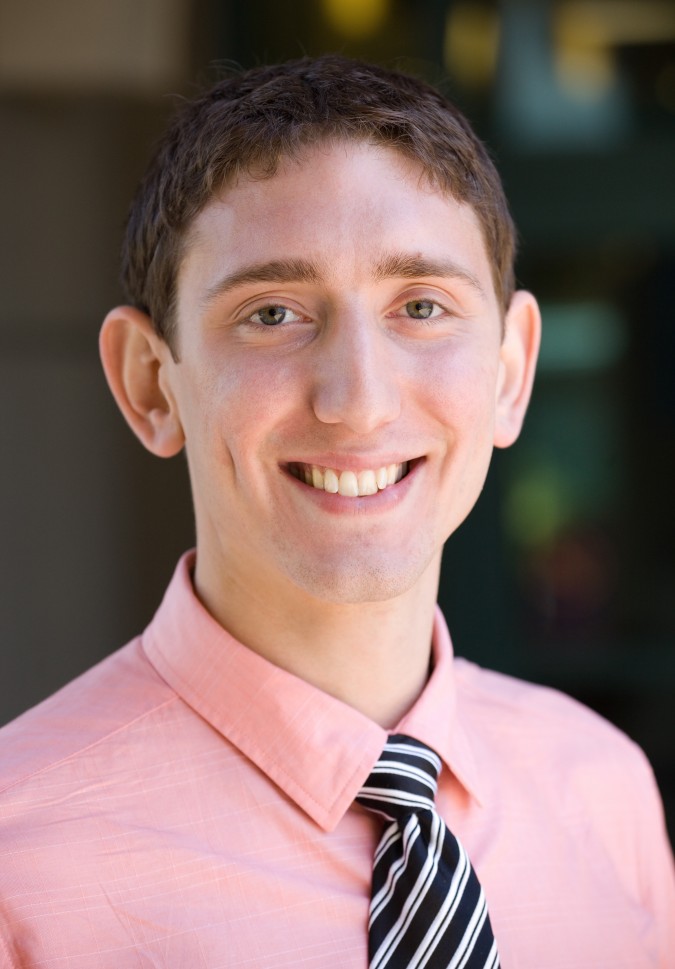
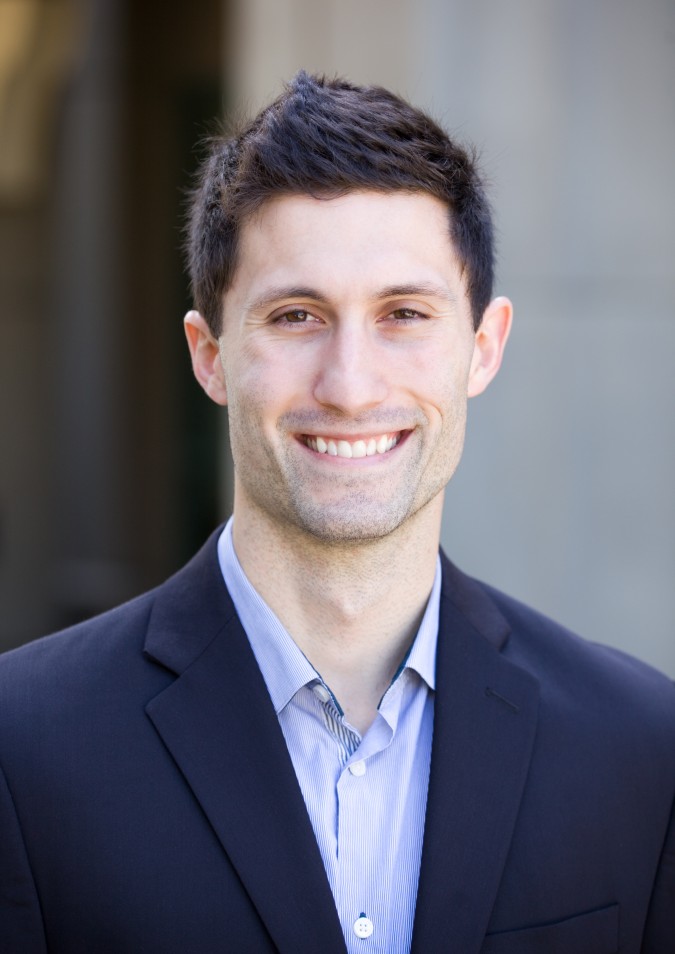
I used my Canon 5D Mark II camera to take these pictures. The group shots were taken with a Canon 50mm macro lens. The individual shots were taken with a Canon 80-200mm f:2.8 L zoom lens. The wide shots were taken with a Canon 16-35mm f:2.8 L zoom lens. I upload pictures to this blog at camera resolution of 21 megapixels. Click on the pictures to load the full size versions, which are larger than the versions you see by default. I pursue blogging and photography as a hobby.
I am sorry I could not photograph everyone. I would have liked to photograph all 18 teams properly, like I do when I attend the 500 Startups Demo Days.
I really enjoyed this event. It was exciting to meet people from around the world. I invite everyone I met, if allowed in your country, to friend me on Facebook so we may stay in touch. Thanks and good luck!
